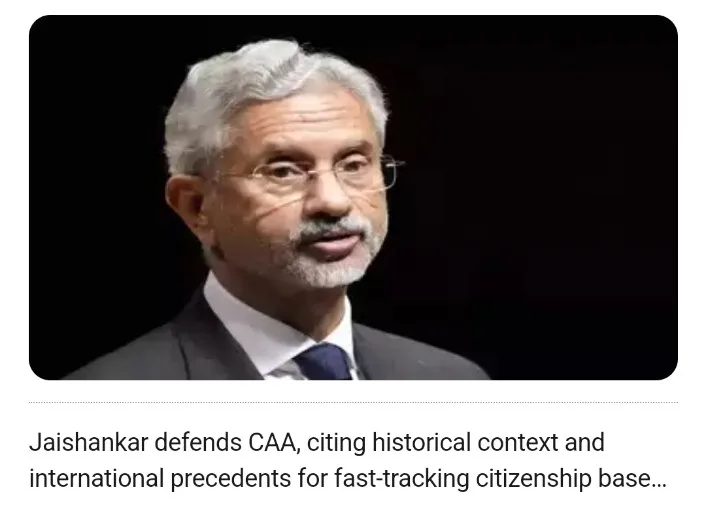External Affairs Minister S Jaishankar has weighed in on the ongoing debate surrounding the Citizenship (Amendment) Act (CAA), emphasizing the historical context and international precedents for expediting citizenship based on ethnicity and faith. Jaishankar addressed criticism of the CAA from the United States and other quarters by pointing out instances where countries have fast-tracked citizenship based on various criteria.
During a media interaction, the foreign minister highlighted examples such as the Jackson-Vanik amendment, which focused on Jews from the Soviet Union, as well as the fast-tracking of Hungarians after the Hungarian revolution and Cubans in the 1960s. He urged critics to introspect on their own policies and understanding of historical contexts.
Jaishankar underscored the importance of considering the partition of India in 1947 and its aftermath, noting that the CAA aims to address the challenges faced by minorities who were left behind. He reiterated India’s commitment to those who were let down during the partition and emphasized the moral obligation to provide assistance to affected communities.
Responding to questions about recent developments impacting US-India relations, including the case of an Indian national facing charges in the US and remarks by the US Ambassador, Jaishankar emphasized the need to distinguish between India and Canada in such discussions. He highlighted differences in the political landscapes of the two countries and emphasized the importance of understanding nuances in bilateral relations.
Jaishankar’s comments come amid ongoing discussions about the CAA and its implications, both domestically and internationally. The minister’s remarks aim to provide clarity on India’s stance and highlight the historical and moral imperatives guiding its policies.




